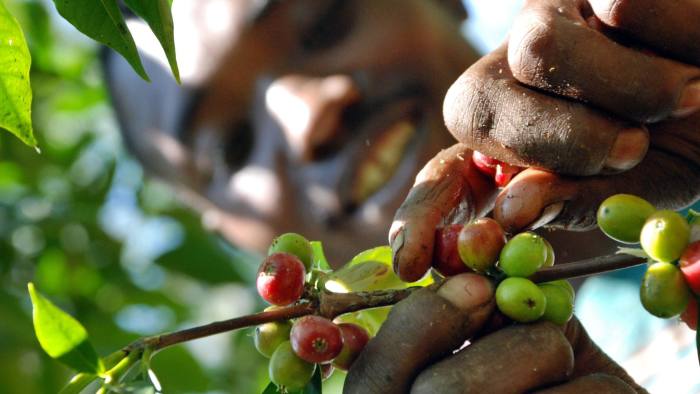Government reforms are designed to encourage farmers to produce more high-quality beans: from https://www.ft.com/content/020bc846-393a-11e7-821a-6027b8a20f23

Please use the sharing tools found via the share button at the top or side of articles. Copying articles to share with others is a breach of FT.com T&Cs and Copyright Policy. Email licensing@ft.com to buy additional rights. Subscribers may share up to 10 or 20 articles per month using the gift article service. More information can be found here.
https://www.ft.com/content/020bc846-393a-11e7-821a-6027b8a20f23
John Aglionby in Addis Ababa MAY 15, 2017 Print this page2 Ethiopia, the world’s fifth largest coffee producer and home of arabica, has overhauled the way it markets the commodity in a bid to increase export earnings and clamp down on a thriving domestic black market. Experts say the reforms, which centre on improving traceability of beans and stimulating higher quality production, could transform the global speciality coffee market because of the expected increased supply from one of the world’s premier producers. Arkebe Oqubay, the government minister overseeing the reform, said he hopes the changes, which are modelled on Colombia’s experience, will see Ethiopia’s annual coffee exports soar from their current $1bn. We could easily earn five times what we’re earning if we do it in the right way Arkebe Oqubay, government minister “We could easily earn five times what we’re earning if we do it in the right way,” he told the Financial Times. “Our aim is to improve traceability and encourage farmers to increase productivity and expand coffee farms.” Under the old arrangements, which were introduced in 2008, the vast majority of coffee was transported to the Ethiopian Commodity Exchange, mixed and then auctioned. This resulted in it losing much of its value because its origin was untraceable, a key requirement in the speciality industry. With little incentive to produce high-quality beans, many of the estimated 5m Ethiopian coffee farmers paid little attention to improving the standard of their crop. It also led to prices on the booming domestic market exceeding export prices, stimulating the former. Now all coffee will be kept separate until it is auctioned, enabling full traceability and overseas companies will be allowed to plant coffee and export it directly. All government activity related to coffee will also be brought under one roof to reduce bureaucracy.

